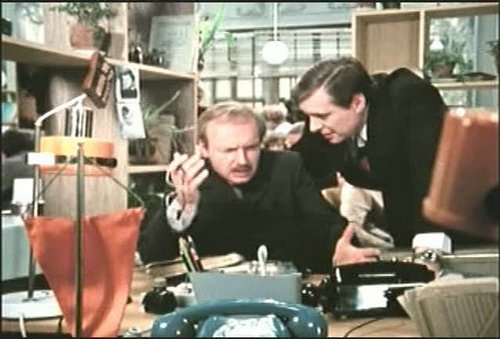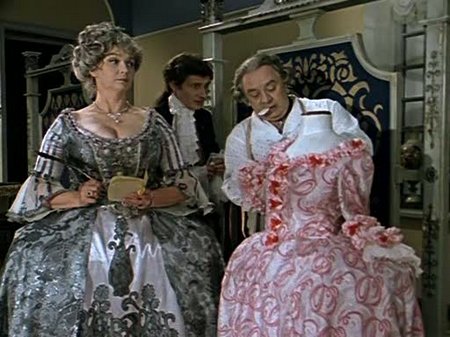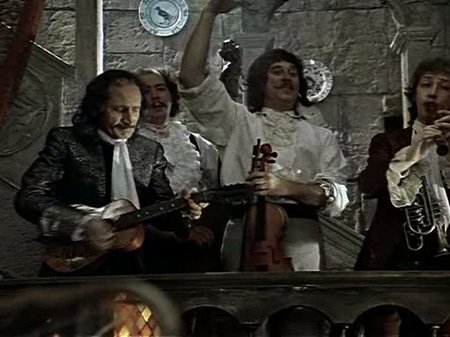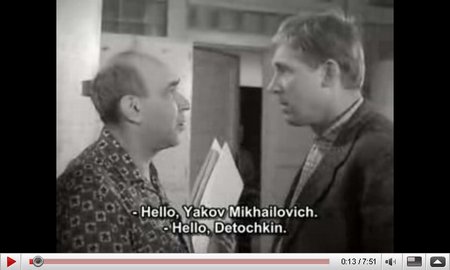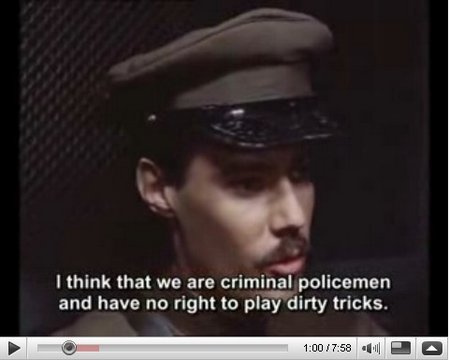
We finished watching Krylya (Wings) tonight. That’s a very good film, at least the first time through.
Afterwards I looked for reviews with which to compare my reactions, and found this:
She is unable to come to terms with her past nor with the present, in which she is the director of a high school and the mother of an adoptive daughter. Her attempts to compensate for her distraction all lie in the direction of appearing authoritative, but the students and her daughter, with the unerring instincts of the young, distrust and despise her.
That wasn’t quite my take on it. The first sentence is a good description, but the 2nd, about “appearing authoritative” doesn’t seem right. Her character has no trouble appearing authoritative. She can’t help but be authoritative. Even when she tries to treat people well, she ends up not being able to help herself. She sets very high standards for herself — which is probably what enabled her to be a successful fighter pilot. But the authoritative part is not an attempt to compensate — it’s just the way she is. She tries again and again, but is unable to expect any less from her daughter, her new son-in-law, her students, or anyone else. And she is not satisfied with her present position in life, either, much of what is too boring for her.
That may sound like a trite Hollywood character, but it’s done very subtly. There are many occasions on which I was afraid this story was going to take a Hollywood turn, but it didn’t.
Maya Bulgakova did an extraordinary job of playing a complex character. I see from IMDB that this is just one of many roles she played. I’m now interested in seeing what other kinds of characters she was able to play.
Late edit: I just now found subtitles for “My Friend Ivan Lapshin” (Moy Drug Ivan Lapshin) at mssubtitles.com. Now if only I could find English subtitles for “The House that Swift Built” (Dom, Kotoryiy Postroil Svift). But I haven’t even found evidence that subtitles were ever made. I would even be glad to find Russian subtitles, even though that wouldn’t help Myra watch it with me.
